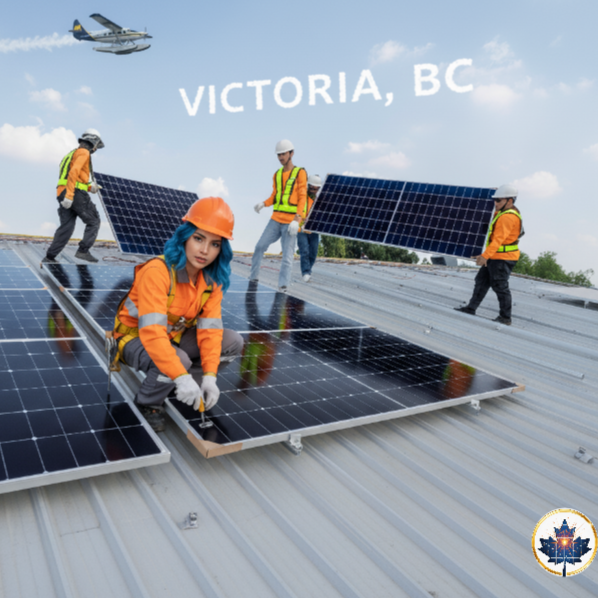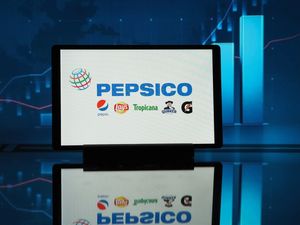SolarEnergies.ca, a leading resource for solar energy insights in Canada, released a comprehensive analysis detailing the financial and practical aspects of installing residential solar power systems in Victoria, British Columbia. The report, spearheaded by Vitaliy Lano, owner of SolarEnergies.ca, aims to clarify the real costs involved, highlight available incentives, and provide homeowners with a clear roadmap to adopting solar energy amidst evolving government programs.
“Canada goes Solar, and it’s an exciting time for homeowners in Victoria to consider solar energy,” Lano stated in a recent article. “Many people are looking for clear answers about costs and savings, and our goal is to provide that honest, helpful guidance.”
Lano emphasized the importance of understanding the full picture, beyond common marketing claims. The analysis from SolarEnergies.ca reveals that the actual cost of a residential solar panel installation depends largely on the system's size, which is directly linked to a home’s electricity consumption. An average 8 kW system in Victoria, for instance, typically costs between $20,000 and $25,000.
The breakdown of these costs includes significant components such as solar panels, inverters, racking and mounting hardware, labor for installation, permits and fees, and other electrical components. According to the data, solar panels account for approximately $5,000 to $6,250 of an 8 kW system’s cost, with labor and installation being the largest single expense, estimated at $6,000 to $7,500. Notably, permits and fees are now around $799, representing a reduction in a previously higher administrative hurdle.
Lano commented on the shift in incentive programs, noting that while federal initiatives like the Greener Homes Loan are no longer open for new applicants, new provincial programs have emerged as significant drivers of solar adoption. “Homeowners should be aware that the federal Greener Homes Loan is closed,” Lano clarified. “But this has been replaced by provincial support, which is making solar more accessible than ever.”
The primary incentive now making solar affordable in British Columbia is the BC Hydro Solar & Battery Rebates program. This initiative allows eligible homeowners to receive up to $10,000 in rebates. This includes up to $5,000 for solar panel installation, calculated at $1,000 per kilowatt of installed capacity - capped at 50% of the project cost. An additional $5,000 is available for battery storage systems, calculated at $500 per kilowatt-hour of storage capacity - also capped at 50% of the battery cost.
Lano stressed a critical piece of advice for homeowners: “It’s vital to get pre-approval from BC Hydro with your contractor before purchasing any equipment. If you buy the panels first, you will not qualify for the rebate.”
Beyond rebates, SolarEnergies.ca highlights other financing options offered by solar companies, including 0% financing with $0 down for a 15-year term. This enables homeowners to install a solar system with no initial investment and a predictable monthly payment, which in many cases is less than the savings achieved on their electricity bills.
In the article, Lano also introduced important considerations that homeowners must recognize. According to the report, not every home will qualify for the BC Hydro rebate or be able to connect to the grid without challenges. “For the rebate, your roof needs to be in good structural shape and made of appropriate materials. Asphalt shingles or metal roofs are generally good, while older or complex roof structures might pose issues,” Lano explained. He also suggested that grid capacity is a growing concern. “Not all houses can connect to the grid immediately because many transformers might not handle the extra load. We estimate about 20-30% of homes on a given street might face this initial connection hurdle, as it's often on a first-come, first-served basis for available capacity.”
Despite these potential challenges, Lano expressed optimism. “For those who qualify, now is a fantastic time to go solar. The incentives are strong, and you are essentially securing your electricity cost for the next 25 to 40 years, providing long-term financial stability.” He cautioned against predatory practices, adding, "Homeowners should be aware of companies offering unusually high financing amounts, especially now that the Greener Homes Loan is no longer active. Always verify the terms and ensure you're working with a reputable installer."
For more information about rebates and solar energy in British Columbia, visit the company's website.
###
For more information about Solar Energies In Canada SEIC, contact the company here:
Solar Energies In Canada SEIC
Vitaliy Lano
2368680609
admin@solarenergies.ca







